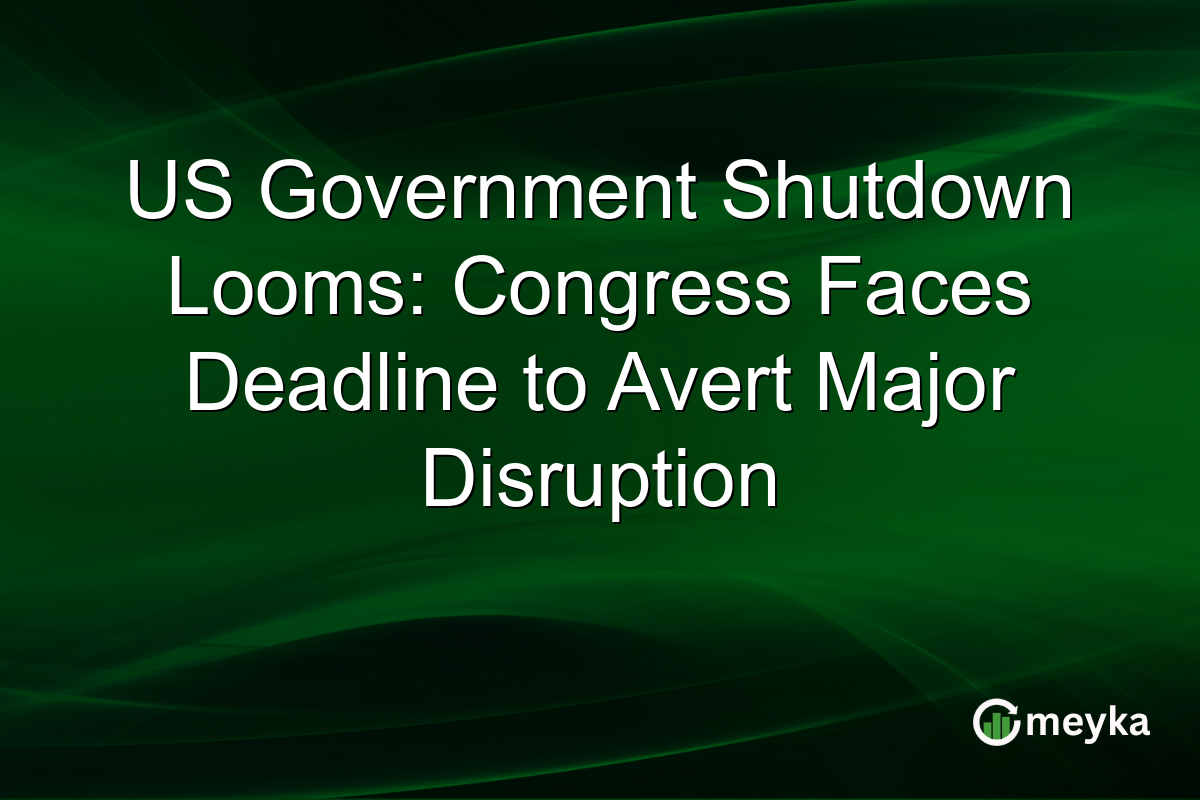US Government Shutdown Looms: Congress Faces Deadline to Avert Major Disruption
The US government shutdown in 2025 is becoming increasingly likely as Congress struggles to meet a critical funding deadline. With both political parties locked in a standoff, the risk of significant disruptions to government services is high. This scenario has sparked widespread concern, influencing financial markets and political discourse, including commentary from former President Donald Trump. Immediate attention is crucial as the October 15 deadline to finance government operations approaches.
Current Political Standoff
Congress is facing a tough battle to meet the October 15 funding deadline, with partisan disagreements threatening to halt government operations. Republicans and Democrats are clashing over budget allocations, and the negotiations show little sign of progress. This stalemate raises fears of a looming US government shutdown in 2025, with potential repercussions for federal employees and public services. The commitment to a resolution is critical as the deadline fast approaches. A recent article from Reuters discusses these political divisions, highlighting the urgent need for agreement. Read more on Reuters. Donald Trump’s remarks have added another layer of complexity, casting doubts on the likelihood of a timely resolution and implying deeper political rifts.
Market Reactions and Impacts
As the deadline looms, the market impact of a government shutdown is increasingly apparent. Investors are on edge, concerned about the economic implications of halted federal services and delayed government contracts. Historically, government shutdowns have caused market volatility, disrupting financial systems and eroding investor confidence. For the current scenario, analysts predict similar outcomes if no agreement is reached. Continued uncertainty over the congress funding deadline contributes to market instability. Financial experts are closely watching Congress’s actions, aware that even the threat of a shutdown can have tangible market repercussions. A report from CNBC elaborates on how markets are preparing for potential fallout.Explore more on CNBC.
Public and Political Pressure
Public concern is growing as government services might face disruption. Key services, such as national parks, government offices, and public safety operations, could see immediate impacts. The pressure on Congress is mounting as constituents demand resolution to avert these challenges. Across social media, discussion is heating up with trending hashtags like #GovernmentShutdown2025. Notably, former President Donald Trump has been vocal about the political drama, criticizing leadership and influencing public sentiment. His comments have fueled debates both in Washington and among voters. Bloomberg reports that public opinion is increasingly negative, pressing Congress to act swiftly. Access the full article at Bloomberg.
Final Thoughts
The approaching congress funding deadline puts Congress in a tense spotlight. Resolving the current impasse is essential to avoid a damaging shutdown. The market impact of a government shutdown, potential service disruptions, and public criticism underscore the urgency of reaching an agreement. As political narratives evolve, Congress must act decisively to safeguard both governmental functions and economic stability. The coming days will be pivotal in determining the outcomes of these high-stakes negotiations, with impacts that could extend far beyond immediate political repercussions.
FAQs
The potential US government shutdown in 2025 is caused by a political standoff in Congress over budget allocations. Without an agreement on funding, government operations could halt, affecting public services and federal employees.
A government shutdown can lead to market volatility as investor confidence is shaken. It can disrupt financial markets, delay government contracts, and create economic uncertainty, affecting both short-term and long-term investments.
Donald Trump has publicly commented on the deadlock, criticizing both parties and adding pressure to the negotiations. His remarks influence political discourse and public perception, potentially complicating the resolution process.
Disclaimer:
This is for information only, not financial advice. Always do your research.






